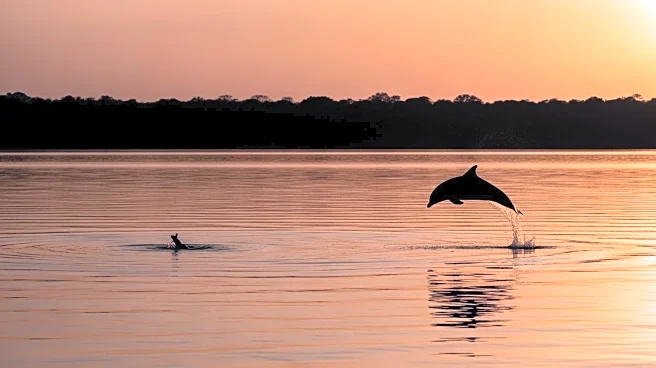What's Happening?
A study has found that hundreds of dolphins in Lake Tefe, Brazil, died due to extreme heat and drought conditions. The lake's water temperature reached 41 degrees Celsius, hotter than most spa baths, causing significant stress to aquatic life. The findings,
published in the journal Science, highlight the impacts of climate change on tropical ecosystems. The study coincides with the COP30 climate talks in Brazil, emphasizing the urgent need for climate action.
Why It's Important?
The death of dolphins in the Amazon underscores the severe impact of climate change on biodiversity and ecosystems. As tropical regions face increasing temperatures and droughts, the survival of species and the livelihoods of local communities are at risk. This situation calls for urgent global climate action and adaptation strategies to protect vulnerable ecosystems and ensure food security for affected populations.
What's Next?
The COP30 climate talks in Brazil may address the findings of this study, potentially leading to increased focus on protecting tropical ecosystems. Researchers and policymakers may advocate for long-term monitoring and inclusion of local communities in developing solutions. The study could also prompt further research into the effects of climate change on aquatic life and the development of strategies to mitigate these impacts.
Beyond the Headlines
The study highlights the need for a shift in focus from reactive to preventive approaches in addressing climate change impacts. Ethical considerations around the protection of endangered species and the involvement of indigenous communities in conservation efforts may arise. The findings could influence global climate policy and drive efforts to enhance resilience in vulnerable regions.

















